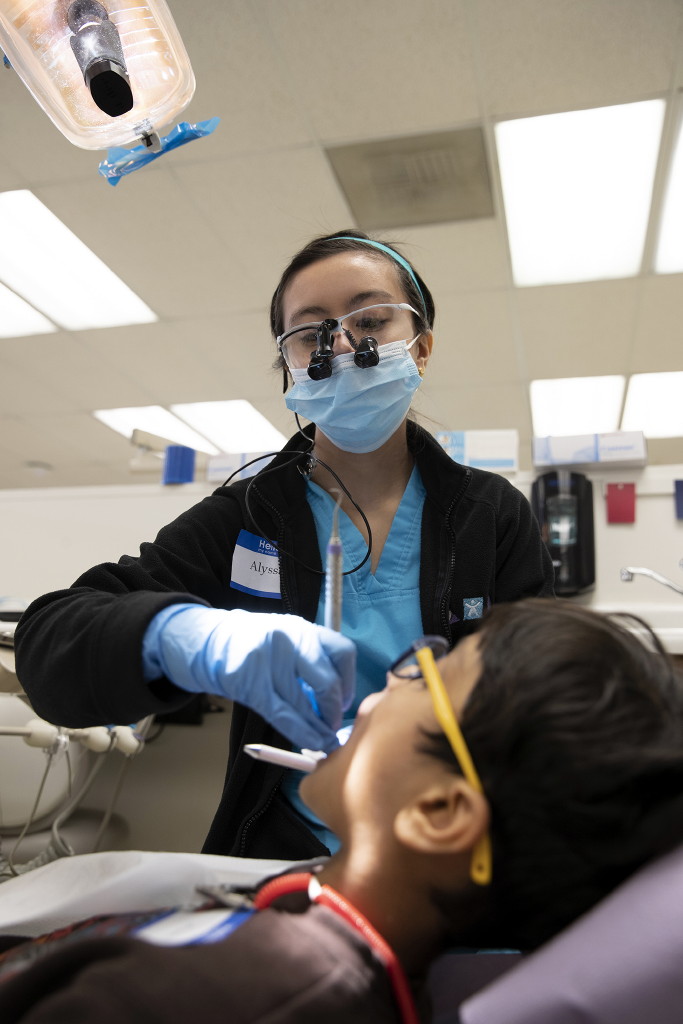February is National Dental Children’s Health Month but it’s a good time to think about the health of your mouth no matter what your age. Dental health is a lifelong endeavor and teeth need to be taken care of at every step along the way.
Women thinking of getting pregnant should go for a dental visit. Men who plan to be dads should go, too. Anyone planning to care for a child can decrease the risk of that child getting cavities by taking care of problems with their own teeth.
During pregnancy, dental care is totally safe and regular dental visits are encouraged. Inflammation in the mouth can affect the unborn child and is even associated with preterm birth.
Babies are born with all their baby teeth under their gums. Infant gums should be wiped with a soft, damp cloth after feedings to keep the mouth healthy because teeth start to come in at about 5 months of age. Breastfeeding a child is important to a child’s mouth development as it helps widen the roof of the mouth and contributes to having teeth that come in straight. A baby should never be put to bed with a bottle with anything in it but water as this can cause cavities. The American Academy of Pediatrics and the American Dental Association recommend a child’s first dental visit by age 1.
From the first tooth on, teeth should be brushed daily with a smear of fluoride tooth paste up to age three, a pea-sized amount ages three and up, and with supervision of brushing till age 9. Baby teeth really matter because they help with speech development and nutrition, and since kids lose them slowly until age 11 or 12, baby teeth are needed to hold the space for the adult, permanent teeth coming in.
Children should be encouraged to eat whole fruits and vegetables and avoid sugary drinks. A rule to live by for dental health is water anytime, milk with meals, sweet drinks – skip it. This goes for adults as well because “we are what we eat and drink” and good nutrition is as important to teeth as it is to the rest of the body.
Adolescents, teens and college-aged kids can really slack-off with personal hygiene and should be encouraged to continue with daily brushing and flossing. Scheduling regular dental visits during school breaks and summer breaks is a good way to ensure any dental problems are caught early. Adults are busy and can slack off on regular dental visits and hygiene, too.
There is especially a lack of flossing, which is needed to get rid of germs between teeth. Keeping floss handy and within reach at home, in the car, in your pack or purse, helps keep this good habit top of mind. Flossing keeps the gums healthy. Bleeding gums are not normal. Brushing and flossing regularly reduces bleeding and helps avoid worse problems with the gums and teeth down the road. It is important to see a dental professional right away if you are concerned about your teeth, gums, or having any mouth pain.
Finally, keeping your mouth healthy is not only good for your whole body, it is good for your wallet. A permanent, adult tooth that gets a cavity (which is an infection of the tooth) is now a weakened tooth. If the mouth continues to be neglected, that cavity can come back under a filling, get bigger, need a crown, a root canal, or even be lost and need to be replaced with a bridge or implant. It is estimated that one tooth can cost well over $6,000 to repair over a person’s lifetime.
Taking care of your teeth truly can pay off.
Yvonne Mikalopas, RDH
North Brunswick

